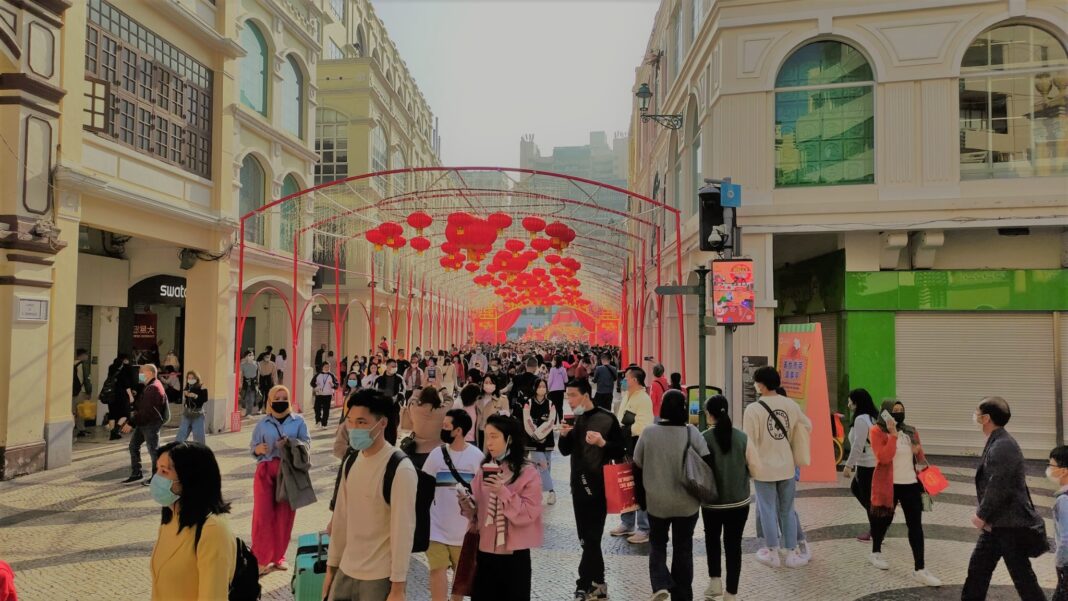A tourism industry expert says that there is a positive outlook for Macau’s non-gaming visitor spending in 2023, despite the negative trend seen last year, as tourism improves but not enough to reach 2019 levels.
The director of the School of Tourism Management of the Macao Institute for Tourism Studies, Max Zhao, told AGB that there have been dramatic changes in tourism expenditure over the course of the pandemic, making year-on-year comparisons misleading regarding growth.
“The data over the three-year pandemic period have lost their accuracy for long-term studies. In order to analyze new trends in 2023, we need to compare the figures to data from 2019,” notes the director.
The entry restrictions imposed during the pandemic meant that Macau solely welcomed visitors from mainland China but the city is now “trying to capture more international visitors”, diversifying the customer base and, subsequently, their demands.
Official data show that non-gaming visitor spending fell by some 25.7 percent yearly in 2022, to just MOP18.17 billion ($2.25 billion), as Macau welcomed just 5.7 million tourists, down 26 percent yearly – both due to the pandemic.
Per capita spending, however, increased 96 percent when compared to 2019 (MOP1,626 – $201), totaling MOP3,187 ($394). In fact, increasing per capita visitor spend was seen over the years of the pandemic, at MOP2,025 ($250) in 2020 and MOP3,173 ($392) in 2021.

Visitors also began to lengthen their stay in Macau, something the government has been trying to encourage for years.
Going forward, the tourism management school director notes that “if the expenditure can keep the same rhythm, with higher per-capita spending this year, I have a very optimistic outlook for Macau’s rebound”.
But Macau’s over-reliance on Chinese visitors could result in visitation that is slightly below expectations, as pent-up demand by Chinese tourists will also be facing the markets it was denied over the pandemic period.
“The results from Chinese New Year are satisfying, and the return of Hong Kong visitors has truly helped diversify the Macau tourism demographic, but we should be conscious that the Chinese market is now open to the whole world,” warns Zhao.
Southeast Asia already benefited strongly after China dropped its travel restrictions, with visitors flocking to destinations such as Thailand, the Philippines and Vietnam, meaning Macau will have to fight for its share of the pie.
“It will be a true challenge for Macau’s competitiveness,” notes the expert.
However, this is focused more on non-gaming visitor spend, as Macau remains the most accessible gaming destination for visitors from the wealthy Guangdong province, despite requiring a visa for entrants. Sharing a land border is a huge boost for visitors intending to gamble in the territory and, if January’s gross gaming figures are any indication – Macau is on an upwards trajectory towards operators returning to strong EBITDA figures, if not strong GGR levels.






















